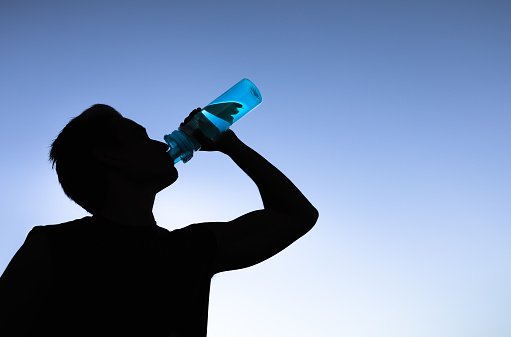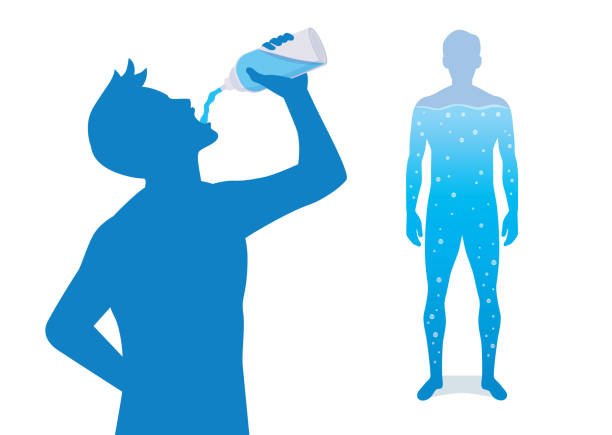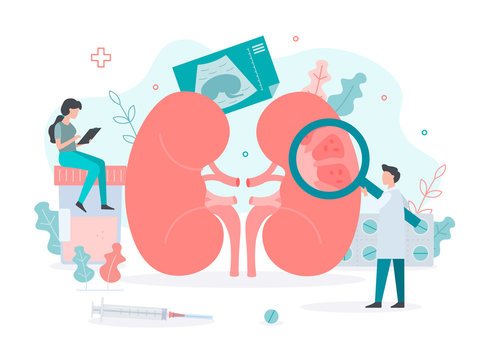Dehydration may be highly harmful to your health and necessitates immediate medical attention. Let’s look at what this ailment is, what symptoms it might produce, and how you can avoid getting it.
What occurs when your body is deprived of water? A dehydrated body provides a breeding ground for various ailments, from minor to severe. But did you realise that dehydration can harm several of your vital organs? Yep, you read that correctly. Persistent or recurrent bouts of dehydration can result in severe urinary tract infections, the production of kidney stones, and even kidney failure.
Is Dehydration Bad For Your Kidneys?
Severe dehydration can lead to kidney failure, so drinking enough is essential when you work or exercise very hard, especially in warm and humid weather. Some studies have shown that frequent mild dehydration may lead to permanent kidney failure and damage.
Dehydration may cause wastes and acids to accumulate in the body and block the kidneys with myoglobin which is known as muscle proteins. All of these items can be harmful to the kidneys. Dehydration can also contribute to the creation of kidney stones and urinary tract infections, which, if not treated promptly, can result in kidney damage.
When there is enough water to prevent stone-forming crystals from bonding, kidney stones develop less quickly. Water aids in dissolving antibiotics used to treat urinary tract infections, making them more effective. Water also aids in the production of more urine, which aids in the removal of germs.
Why Is Hydration Important For Your Kidneys?
Hydration is vital for kidney health since the kidneys are responsible for the body’s fluids and electrolytes. The kidneys filter waste and surplus fluids from the blood and eliminate the resultant urine from the body. If the body is not adequately hydrated, the kidneys cannot execute this job efficiently, and waste products can accumulate in the body, potentially causing renal damage.
When dehydrated, the kidneys preserve water by decreasing urine production. This can cause urine to become more concentrated, increasing the risk of kidney stones and urinary tract infections. Dehydration can also increase blood pressure, contributing to kidney damage over the years.
Sufficient hydration aids blood pressure regulation and reduces the risk of kidney injury. As a result, maintaining appropriate hydration is critical for kidney health. The usual guideline is drinking at least eight glasses of water daily. However, this might vary based on age, activity level, and medical issues. Contact a healthcare expert to evaluate the optimum fluid intake for your unique needs.

How Can I Prevent Dehydrated Kidneys?
The first step to avoiding dehydrated kidneys is to be aware of their existence. Let’s look at a few techniques to avoid having dry kidneys with that out of the way.
1. Water Is Your BFF
Water is the natural antidote to dehydration. As a result, it is essential to consume as much water as possible. Others may claim that any form of fluid is beneficial for rehydration. Yet, when it comes to kidney health, water is still the best bet.
The phrase “eight glasses of water a day” is widely accepted. Unfortunately, there is currently insufficient proof. Instead, the ideal approach is to drink as much water as you need. It’s also a beneficial practice to consume alcohol as much as possible. Every morning, noon, and night, perhaps.
2. Keep an eye on the weather.
Many people fall into a routine throughout the day. While regularity is beneficial, it might cause people to overlook other circumstances that may impact them. The weather is one of them.
Keep an eye on the weather on news networks or online. When it becomes too hot, use it as a hint to drink more water regularly throughout the day. This guarantees that the heat does not influence you and that dehydration is avoided.
3. Monitor Urine Colour
The colour of your urine is one clear symptom of dehydration. If you drink water regularly, the urine colour will range from a lighter shade of yellow to a clear tint. This indicates that you are well-hydrated.
On the other end of the range, if your urine has a lighter brown colour, this indicates that you are dehydrated.
The fluids are ingested to neutralise the original urine colours. That is why consuming more water causes urine to become lighter yellow and clearer—meanwhile, a lack of water intake results in a deeper colour owing to its concentration.

4. Consume plenty of fluids.
Every day, you should make sure to drink 8 glasses of water or other fluids. You may need to drink extra if you are physically engaged if the weather is hot.
5. Reduce your intake of caffeinated and alcoholic drinks.
Drinking drinks might dehydrate you and put additional strain on your kidneys. If you consume them, drink plenty of water to help neutralise their effects.
6. Take breaks while sitting or standing for lengthy periods.
Take pauses to stretch and move about if you sit or stand for long hours. This can aid in improving blood flow to your kidneys and lowering your risk of kidney disease.
7. Speak with your healthcare provider.
If you have medical conditions such as diabetes, or heart failure, talk to your doctor about how much water you should drink on a daily basis. You must also be wary not to avoid diabetes warning signs.

Conclusion
Ina nutshell, health experts advise drinking extra water, particularly for physically active persons who live in hot climes or have specific medical problems that raise fluid requirements. Drinking 3-4 litres of water daily may be more suitable.
As a result, you must consume various fluids daily to stay hydrated. Paying attention to your body and modifying your water intake accordingly is also critical. If you’re thirsty or your pee is dark yellow, it might mean you need to drink more water.
This is why it is critical to monitor your health frequently. Basic health screenings are a comprehensive strategy to check a person’s general health and detect any health issues early in their development, when they may be easier to treat or manage.
We provide the finest health screening packages in Malaysia, including mobile and complete health exams for men and women personalised to your needs, as a leading digital healthcare platform situated in Kuala Lumpur.
Qmed Asia also provides home-based health screening services by licensed medical professionals, so you won’t have to worry about anything throughout the screening procedure. Call us right away to book your health test!




